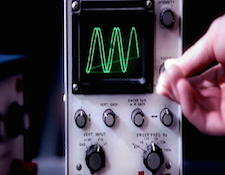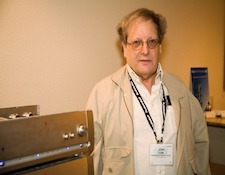It’s the time of year for saving money!
In almost thirty years of working with engineers in a wide and disparate array of companies and manufacturers, if I’ve learned one thing it’s that they approach solutions very differently. Which lends explanation to the reason why so many different products exist. Were there only one workable solution for any design of anything, we would live in a very vanilla flavored and possibly boring world. Through inventiveness and ingenuity, engineers have the means to bring variety to products and the resultant new designs that evolve over time.
 This is plainly evident in high performance audio. What started out as tube amplification in the turn of the 20th century evolved into all the popular designs audiophiles covet today. Perhaps the most seismic change was the introduction of transistors in the late 1950’s and early 1960’s. Today, we have multiple amplifier designs in both tube and transistor all because somewhere, an engineer was trying to think of a different or maybe better way to power a musical signal.
This is plainly evident in high performance audio. What started out as tube amplification in the turn of the 20th century evolved into all the popular designs audiophiles covet today. Perhaps the most seismic change was the introduction of transistors in the late 1950’s and early 1960’s. Today, we have multiple amplifier designs in both tube and transistor all because somewhere, an engineer was trying to think of a different or maybe better way to power a musical signal.
This diversity in system approach may also lead to debate regarding the best design solution. I’ve watched with amusement across multiple high-end audio forums where engineers trade comments back and forth about a subject. It’s not uncommon that one engineer’s comment will bring up a design concept and another engineer will denounce the theory entirely and offer a differing viewpoint. Often times, this leads to a discussion having little resemblance to the original topic. It also gives credence to the notion that there are multiple ways to approach designing a product or finding a solution to a problem. Truth is, there’s a distinct possibility that, to some extent, all differing viewpoints may be correct.
I read a comment recently where the poster was of the opinion that audiophiles typically bring emotion into audio products and engineers, almost by necessity, find the need to remain circumspect. I suppose on some level this makes sense. I also know that for myself, emotion is an integral part of the joy I derive from my audio system. Dynamics, frequency range, imaging and clarity – all of these things and more evoke emotion. They are the very foundation of why I frequently sit in joyous disbelief in my system’s sonics. Yet they exist in the first place because of an engineer and the pervasive need to solve a design question. So are the qualities we all enjoy in our music the result of someone who is just being cautious – or are they the result of someone who is designing something because their design goals are emotionally based?
Another interesting dynamic is how complex being an audiophile has become. If you follow the high-end press in any manner what so ever, it becomes quickly obvious that there are quite a few intelligent people following this hobby. All of these technical discussions are in support of, or in contradiction to, the reasons why our music sounds as it does. For every opinion favoring one thing, there are just as many favoring the opposite. Yet somehow, we manage to turn on an audio system, play a song, sit in a comfortable chair with our eyes closed, listen and enjoy the music we hear. Whether or not that experience is the result of an engineer being circumspect or emotional is beyond me – I just know I’m glad the resultant designs evoke a connection to the music.
There are certain times, having heaped praise on the intelligence of the audiophile community, that I wonder if things have not been taken a bit too far. I have asked myself on more than one occasion if I am paying far too much attention to the specifications and the engineering of a product rather than evaluating it’s sonics.
 At what point do we cross that unseen line in the sand of common sense by continued vitriolic positioning as opposed to the simple pleasure of a song? Are we, as audiophiles (et. al.), placing too much importance in the continuing debate of the how’s and why’s of how something actually works and less importance in how it sounds? Do we find ourselves in outrage of something written in a web site at the expense of the pleasure of the sonics our systems produce?
At what point do we cross that unseen line in the sand of common sense by continued vitriolic positioning as opposed to the simple pleasure of a song? Are we, as audiophiles (et. al.), placing too much importance in the continuing debate of the how’s and why’s of how something actually works and less importance in how it sounds? Do we find ourselves in outrage of something written in a web site at the expense of the pleasure of the sonics our systems produce?
Are we failing to chase the absolute sound (not the magazine)? To contradict the point, does one have any bearing on the other?
Personally, I really enjoy reading a variety of audiophile web sites and the comments left by the participants. I think many of these comments are very insightful and I find that very often I learn something new. I also find that many of them are pure fantasy.
 I’ve always supported the idea that I’ll take genius any day. When you look at many of our most revered audio companies, they are owned and headed by one visionary person who is incredibly brilliant. That brilliance manifests itself in remarkable audio products. One doesn’t have to look very far to find them either. They can be found in most of the manufacturers making some of the finest products in our hobby. While their individual methods to address a solution may vary from company to company, genius is still evidenced.
I’ve always supported the idea that I’ll take genius any day. When you look at many of our most revered audio companies, they are owned and headed by one visionary person who is incredibly brilliant. That brilliance manifests itself in remarkable audio products. One doesn’t have to look very far to find them either. They can be found in most of the manufacturers making some of the finest products in our hobby. While their individual methods to address a solution may vary from company to company, genius is still evidenced.
We have design and engineering brilliance in the overwhelming majority of the manufacturers of our high end products. We have a large percentage of the practitioners of the hobby with a commanding knowledge of how things work. We find as much agreement as disagreement in the principals of the sonics our systems produce. And despite it all, hopefully, we’ll find a way to enjoy listening to a song on a stereo.
Like I said, I’ll take genius any day.





